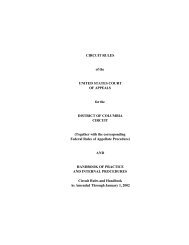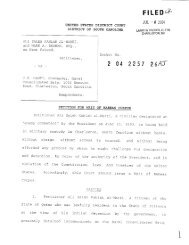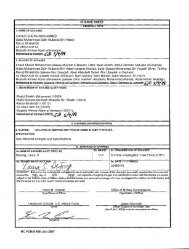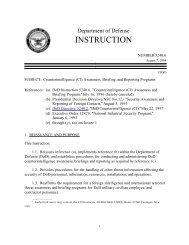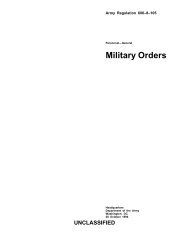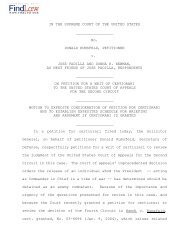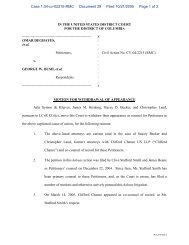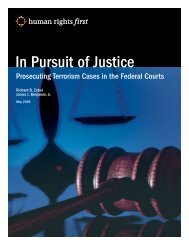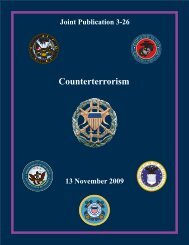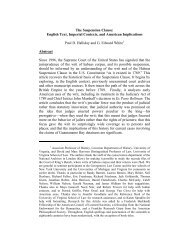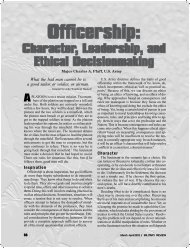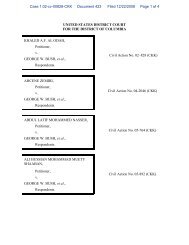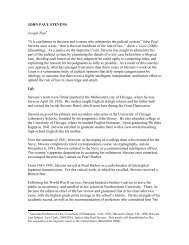Government Merits Brief - Hamdan v. Rumsfeld
Government Merits Brief - Hamdan v. Rumsfeld
Government Merits Brief - Hamdan v. Rumsfeld
You also want an ePaper? Increase the reach of your titles
YUMPU automatically turns print PDFs into web optimized ePapers that Google loves.
15<br />
sion,” and that judicial review should await such a decision.<br />
See DTA § 1005(e)(3), 119 Stat. 2743.<br />
II. THE PRESIDENT HAS AMPLE AUTHORITY TO CON-<br />
VENE MILITARY COMMISSIONS TO TRY AND PUNISH<br />
AL QAEDA COMBATANTS SUCH AS PETITIONER<br />
Petitioner’s central submission is that the President<br />
lacked the authority to establish military commissions to try<br />
and punish captured enemy combatants in the ongoing armed<br />
conflict against al Qaeda. That contention is refuted by Congress’s<br />
actions, this Court’s precedents, and the war powers<br />
vested in the President by the Constitution.<br />
A. Congress Has Authorized The Use Of Military Commissions<br />
In The Armed Conflict With Al Qaeda<br />
1. Congress’s most recent action in this area—the Detainee<br />
Treatment Act of 2005—alone defeats petitioner’s<br />
claim that the military commissions are not authorized. In<br />
the DTA, Congress expressly recognized and ratified the latest<br />
Military Order governing the use of military commissions<br />
in the specific context of the current conflict and established<br />
an exclusive mechanism for individuals such as petitioner to<br />
obtain judicial review of final decisions issued by military<br />
commissions. See § 1005(e)(3)(A) and (C), 119 Stat. 2743. The<br />
DTA also delineates restrictions on judicial review of military<br />
commissions, differentiating the review available based on<br />
the length of the sentence a defendant receives. See<br />
§ 1005(e)(3)(B) and (D), 119 Stat. 2743. Petitioner’s contention<br />
that the military commissions are not authorized by Congress<br />
is irreconcilable with the DTA. The DTA reflects Congress’s<br />
judgment that the current military commissions are<br />
neither ultra vires nor too deficient to be allowed to proceed<br />
to render a final decision. In any event, as the court of appeals<br />
correctly concluded based on pre-DTA enactments, Con-



